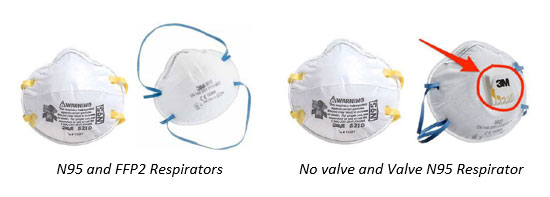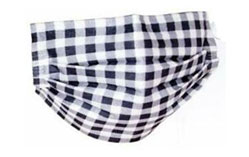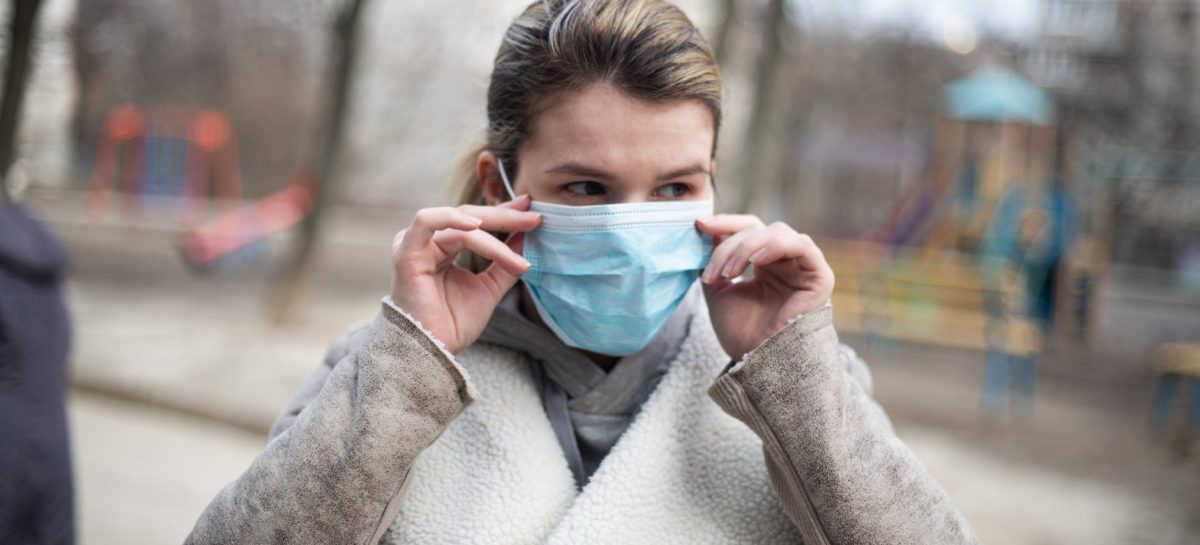The Covid-19 pandemic has shown how vulnerable the human race is to disease and destruction. Governments and Healthcare institutions around the world are coming to terms with the fact that newer strains of virus will come in to the world from time and time. Finding a cure or vaccine for the same can be a long-drawn affair. In such a situation, prophylactic measures help limit the spread of the virus, and reduce the risk of infection. One such measure is wearing of a mask.
Why wear a mask…
There are various kinds of viruses that affect the respiratory system, each with their own unique epidemiology – that is: method of spread, risk factors, infection patterns, symptoms, cures and treatment options. One aspect that is common to the entire Corona family of viruses, which have caused various outbreaks since 2002, is that they spread through droplet infection.
Whenever a Covid-positive or an asymptomatic carrier (somebody who is infected by the virus but is not showing symptoms) talks, coughs or sneezes, mucous and saliva drops from his/her body deposit on surfaces around him/her. People who touch these surfaces and then their nose or mouth end-up ingesting or inhaling the virus into the body. Wearing a mask reduces the droplet spread as the droplets are now absorbed by the mask to a good extent.
Who should wear a mask?
The following categories of people should wear a mask:
- Doctors, nurses, healthcare staff and volunteers who are managing or treating Covid-positive patients and asymptomatic carriers – or those who are at high risk. This includes people with a travel history or those who may have come in contact with a Covid-positive person.
- The general public who live in a containment zone
- The general public who do not live in a containment zone but are stepping outside the home for various reasons. In this context, it’s good to avoid crowded places.
- A Covid-19 patient who is under home-quarantine, and his/her family members
When is wearing a mask not required?
Anybody who is not diagnosed with Covid-symptoms, or does not live at home with a person who is diagnosed with Covid-symptoms need not wear a mask while at home. However, such a person should still wear a mask while stepping out of home.
Types of Masks
Masks have been around for over hundred years and have been used in various industrial, healthcare or domestic settings. Over time, advances in manufacturing and material science have created a wide array of masks, with different filtering capabilities.
The Corona virus is between 0.06–0.14microns in diameter or 60-140 nanometres. Contrary to what we may think, viruses this tiny are easier to filter than those that are larger than 0.3 microns, because they follow a Brownian motion (random zig zag) and therefore trap more easily inside filters.
Dust Mask

A dust mask is a flexible, moulded, disposable mask made of paper pad. It is generally used during house dusting,grass mowing, gardening, sweeping and sandstorms.It’s also used at brickwork kilns and fibreglass factories. This type of mask does not offer any protection against COVID-19 and should not be used.
Single-layer face mask

This is made of a single-layer of cloth fabric or tissue paper made from wood pulp. They are generally used in food processing industry to prevent spices from irritating the nose or in garment factories to prevent cloth dust from entering the nose. This too does not offer any protection against COVID-19 and should not be used.
Surgical or Medical mask

These are made of three layers – the innermost layer is made up of an absorbent material that absorbs moisture from the wearer’s breath, the middle layer is made up of a synthetic material that acts as a filter, and the outer layer is made up of material that repels liquid. The general public can use this mask. It offers 75% protection, which means if 100 units of virus-containing aerosol come in contact with this mask, 25 units can enter the body. However, this is useful in limiting the transmission of the virus by 50%.
Respirator mask
This is a tight-fitting mask which ensures air does not leak into the nose or mouth from sides. It also comes with an air-filtration system which prevents micro-organisms and toxic gases from entering the respiratory tract.
While there are different types of respirator masks available, for various purposes, in the present context of protection against Covid-19, N95 mask is most relevant.
N95 Mask: An N95 mask or N95 respirator is a particulate-filtering face piece respirator that meets the U.S. National Institute for Occupational Safety and Health (NIOSH) N95 classification of air filtration, meaning that it filters at least 95% of airborne particles. N95 respirators are considered functionally equivalent to FFP2, which some manufacturers distribute in India .
This is good enough to reduce the transmission of the virus by 70%. This mask is recommended for health workers who are exposed to a higher viral load, and for a longer period of time.
N95 masks come in 2 types: with and without a valve. Please note, the N95 mask with a valve should not to be used as it only protects the user and not the people around him/her. This means, an infected person who is wearing a N95 mask with valve will continue to breathe out microbes that can infect others.

There are also N99 and 100, which are not in general use
Cloth mask

For the general public who do not live in a containment zone, are not diagnosed with Covid symptoms and are not living with a person diagnosed with Covid symptoms, a cloth mask is good enough while stepping out of home. These are soft and made of 100% cotton. This offers 67% protection, which means if 100 units of virus-containing aerosol come in contact with this mask, 33 units can enter the body. However, this is useful in limiting the transmission of the virus by 40%.
There is little to no difficulty in breathing. They can be washed with soap water at home, sun-dried and reused again and again.
Dos and Don’ts
- Surgical and Respirator masks come with clear specifications on duration of continuous use, re-usability, how to wash and dry, and how to dispose them. Healthcare professionals are trained on this information. The general public using such masks should read the manual or instruction sheet that comes with the mask. Not following these instructions can render your mask ineffective.
- Purchase surgical or respirator masks from pharmaceutical shops. They should be of reputed brands.
- Single-layer masks are being sold as a one-time, use-and-throw option. However these do not provide any protection and are best avoided.
- Cloth masks should be washed once the person has worn it and returns home. They can be washed by hand using soap water and do not require machine-washing. They should be dry before reuse.
- Avoid sharing masks with anybody. Every member of the family should have their own mask.
- If a new or old mask shows damage in the fabric, dispose it immediately and purchase a new one.
- There are clear instructions published by local governments on disposing of masks. Follow the same to avoid penalties.
- While wearing the mask, ensure both your nose and mouth are covered. The mask should not sit below your nose.
Conclusion
In countries such as Japan, Taiwan, Hong Kong, Singapore and South Korea, people routinely wear masks in public as a courtesy to fellow citizens. This has become a part of their culture and public discipline. These countries have shown lower death rates, lower infection rates and flatter curves. So also, ever since the pandemic broke out, all those countries which have strictly enforced wearing of a mask have had lower fatalities and flatter curves than those countries which did not.
This only goes to prove that wearing a mask is very effective in reducing the risk of infection from Covid-19. Buy a good quality mask and use it with discipline, then you and your family are at a much reduced risk of infection than others. Advise people around you to do the same. This will create safer homes, workplaces and communities, and help us win the battle against Covid- sooner than expected!
Kauvery Hospital is globally known for its multidisciplinary services at all its Centers of Excellence, and for its comprehensive, Avant-Grade technology, especially in diagnostics and remedial care in heart diseases, transplantation, vascular and neurosciences medicine. Located in the heart of Trichy (Tennur, Royal Road and Alexandria Road (Cantonment), Chennai, Hosur, Salem, Tirunelveli and Bengaluru, the hospital also renders adult and pediatric trauma care.
Chennai – 044 4000 6000 • Trichy – Cantonment – 0431 4077777 • Trichy – Heartcity – 0431 4003500 • Trichy – Tennur – 0431 4022555 • Hosur – 04344 272727 • Salem – 0427 2677777 • Tirunelveli – 0462 4006000 • Bengaluru – 080 6801 6801



